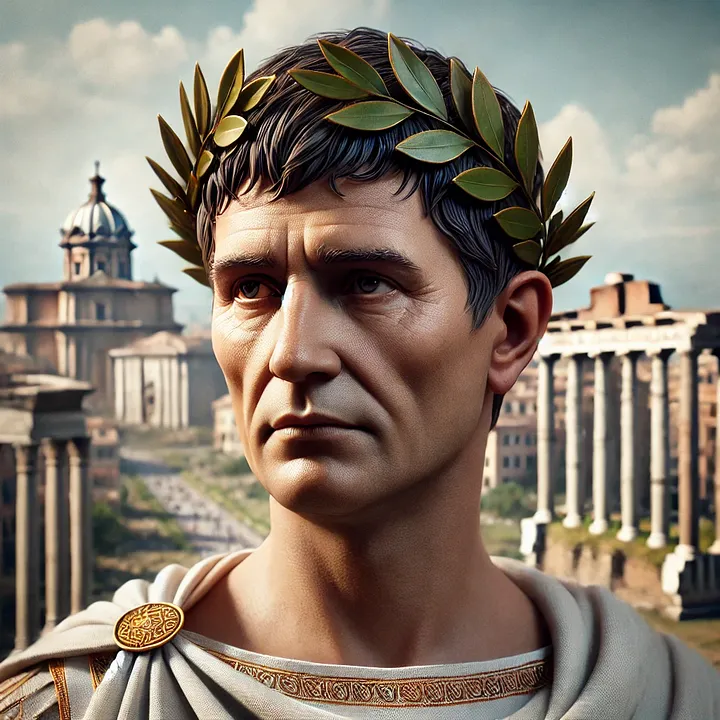
The Humble Beginnings
Caesar’s family had once been powerful, but by the time he was born, they had lost their influence. Rome was a brutal place, and Caesar learned early that survival required boldness.
When he was just a teenager, his father died, leaving him to navigate a world of political chaos alone. To make matters worse, he was targeted by a dictator named Sulla. Caesar’s refusal to give in to Sulla’s demands nearly cost him his life.
He fled Rome, becoming a fugitive, stripped of security, hunted, and forced to start all over. But instead of breaking, Caesar grew stronger.
The Turning Point
Caesar didn’t just survive — he thrived. He joined the military, proving himself in battle and earning the respect of his peers. But Caesar’s vision wasn’t just about personal success. He dreamed of a Rome where power was balanced and opportunities were shared.
When he returned to Rome, Caesar faced a city divided by corruption and greed. Many would have given up, but Caesar saw an opportunity. He formed alliances with powerful leaders, using charm and strategy to climb the political ladder.
Yet, his path wasn’t smooth. His enemies mocked him, called him reckless, and tried to block his every move.
The Rise Against All Odds
One of Caesar’s boldest moves was leading his army across the Rubicon River. This act was a declaration of war against the Roman Senate. It was risky — if he failed, he would lose everything.
But Caesar believed in his vision.
His gamble paid off. Caesar defeated his enemies and became the most powerful man in Rome. But he didn’t stop there. He introduced reforms that improved the lives of ordinary citizens. He built roads, restructured debt, and even created the calendar we still use today.
The Betrayal That Changed Everything
Despite his achievements, Caesar’s ambition created powerful enemies who envied him. Among them was his once-loyal friend, Brutus. Caesar trusted Brutus deeply.
But when conspirators plotted to assassinate Caesar, Brutus joined them. On the Ides of March, Caesar was stabbed to death by the very people he thought he could rely on. His last words, “Et tu, Brute?” captured the heartbreak of betrayal.
This moment wasn’t just the end of Caesar’s life — it was a turning point in Roman history. The betrayal showed the fragility of trust when placed in humans(who by nature are changeable).
The Legacy That Lives On
Caesar’s life wasn’t without flaws. His ambition made him enemies, and ultimately, it led to his assassination. But his story didn’t end with his death. His name became synonymous with leadership and greatness.
Your Journey
Like Caesar, you have a story worth telling, one that can inspire and influence others.
Whether you’re building a business, launching a movement, or shaping your legacy, your story matters. Let’s craft it together and ensure your message leaves an impact that lasts for generations.
